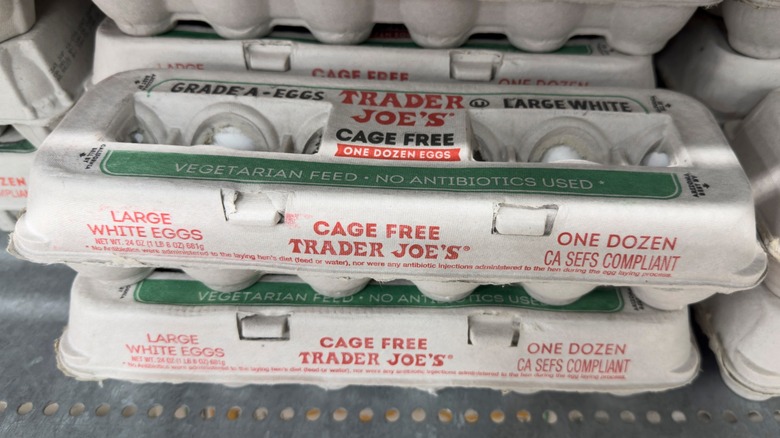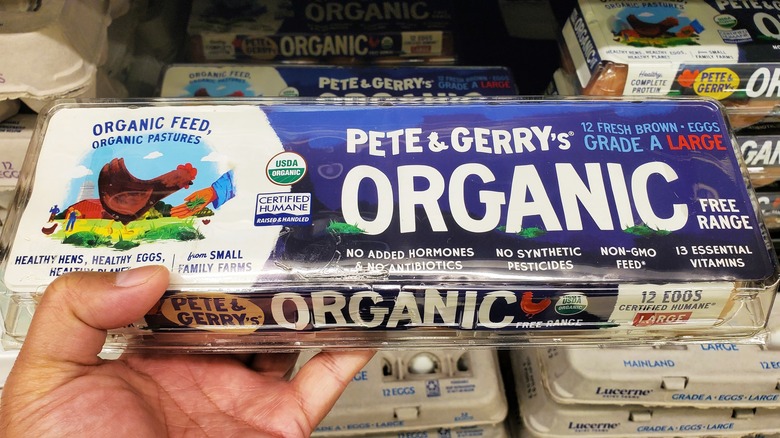Where Does Trader Joe's Source Its Eggs From?
Trader Joe's, a beloved grocery chain known for its private label products, offers a wide assortment of eggs. Its selection features Grade A eggs in various sizes and standards, such as farm fresh eggs (which are one of the secrets for making the best scrambled eggs), pasture-raised eggs, and cage-free eggs. But who is housing the hens that produce them? While Trader Joe's keeps its prices cheap by selling only its own private labels, many of the eggs offered at the chain are sourced from Pete & Gerry's.
The brand once went by Carol's Eggs, which fell under the umbrella of the New Hampshire-based company Pete & Gerry's. You might still occasionally see the name Carol's Eggs floating around the Trader Joe's website, but that brand is now retired and is currently sold under Pete & Gerry's.
When companies use private labels, such as Pete & Gerry's, there is often no interaction with the farmers, which can obscure farming practices. However, those worried about the treatment of the hens at Pete & Gerry's will be happy to hear that the operation is fully transparent and meets humane standards when it comes to raising chickens. In fact, the non-profit watchdog organization The Cornucopia Institute noted that the farm allowed its hens access to a well-vegetated pasture and both indoor and outdoor enrichment. Although there are some items you should never buy at Trader Joe's, you can rest assured that TJ's eggs are high quality. Moreover, Pete & Gerry's paved the way for humane and sustainable egg production in the United States.
The history of Pete & Gerry's
Carol's Eggs, along with the overarching Pete & Gerry's brand, originated from the Ward family farm in the 1950s. Les Ward passed the farm down to his daughter, Carol Ward, and her husband, Gerry Laflamme. Later, the married couple joined with Carol's cousin Pete to create the parent company Pete & Gerry's in 1980. However, the merger between the two happened during the farming crisis that spanned throughout the '70s and into the mid 1980s. The crisis was driven in part by poor lending policies that left many small-town farms in financial ruin.
As a result, the industry saw widespread consolidation and the rise of factory farming. For Pete & Gerry's, this meant an uphill battle to compete against industrial-sized egg producers and the company fell on hard times as a result. Despite the challenges, the egg producer did not adopt industrialized farming methods. Around this time, however, Carol and Gerry's son, Jesse Laflamme, had returned home from college to take over the family business full-time.
Jesse made the bold decision to go fully organic, telling Inc. in a 2018 interview that the change was a "Hail Mary pass to save the farm, since the organic market was practically nonexistent at the time." Despite the risk, his plan paid off, and the farm turned around within two years. In 2003, Pete & Gerry's became the first egg producer in the United States to become Certified Humane.

